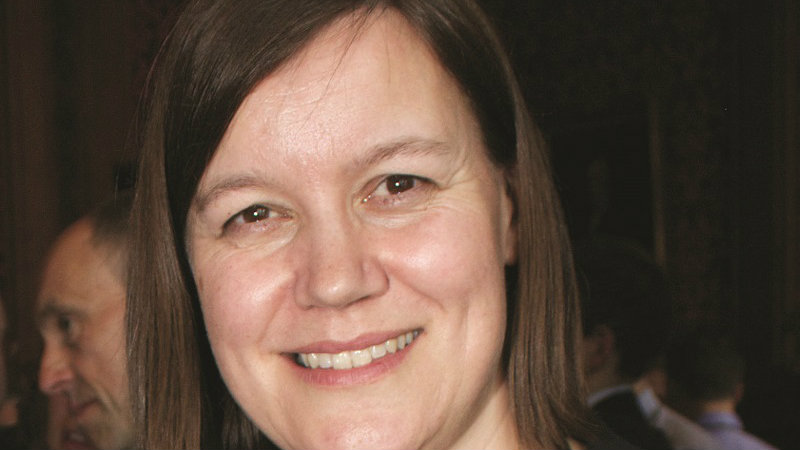News review - April 2018
But work to hit year-end financial plans will have reached fever pitch. And, in the longer term, there were warnings of costs that could spring from NHS financial instability and pointers to opportunities that could save the service millions of pounds.
The Commons Public Accounts Committee said NHS financial pressures could lead to more work for the Care Quality Commission. A committee report said services could deteriorate in the face of severe financial pressure and the CQC should monitor the impact on its staffing needs. This could come amid funding cuts to the regulator. The committee said the CQC had improved since 2012 – when it first reported on the regulator. It added that the CQC should make inspection reports available to the public sooner and improve its regulation of, and interaction with, GP practices.
There is a clear association between a provider’s level of employee engagement and its agency staff spending, according to a report commissioned by NHS England. The report examined links between staff engagement and sickness absence and also engagement and temporary staff spending. It said trusts with higher employee engagement have lower levels of sickness absence and have lower spending on agency and bank staff. NHS leaders should investigate the importance of measures to make staff more highly engaged, it added.
Public Health England also came up with a cost-saving opportunity. Its newly launched target of reducing calories in everyday foods by 20% by 2024 is, of course, about improving the health of the nation. The public health body said the measure could prevent more than 35,000 premature deaths. However, it could save around £9bn in health and social care costs over 25 years too. The public health body said the NHS currently spends £6bn a year treating obesity-related illnesses and these problems keep people out of work, stifling their income and the country’s economic productivity. As well as challenging the food industry to reduce calories, it also launched a campaign to get adults to limit calories to 1,600 a day – 400 for breakfast and 600 at both the other main meals.
The full extent of the winter pressures on the NHS is becoming more apparent. The NHS National Emergency Pressures Panel issued an update on the demand faced by health services this winter. The panel said that the number of bed closures as a result of norovirus was up to 143% higher than in the previous winter. And following the worst flu outbreak this decade, an estimated 4,000 beds a week are still being taken up with flu sufferers. The latest winter situation reports (sitreps), published separately by NHS England, showed bed occupancy at just over 95% in the week ending 25 February. The panel warned that further cold snaps in March could trigger a rise in hospital attendances and admissions. Despite the pressure, it added that there were some notable successes, including a fall in the number of bed days lost due to delayed transfers of care, which are now at their lowest in almost three years.
NHS England said there were 45,000 fewer delayed transfer of care cases in January – a decrease of almost 23% on the previous January. It added that 85% of A&E patients were seen within four hours in February, compared with 87.5% in February 2017. There were 1.82 million attendances – 4.9% more than the previous February. There were also 6.5% more emergency admissions than in February 2017. Just over 88% of patients in January had been waiting for elective treatment for less than 18 weeks. In January 2017, the figure was 90% – in both months, the service missed the 92% referral to treatment target.
Given the problems faced by the NHS, it’s of little surprise that public satisfaction fell by six percentage points in the last year. The British Social Attitudes survey found satisfaction dropped to 57%, while dissatisfaction rose to 29% – the highest level in a decade. There was also a significant drop in satisfaction with GP services, which fell seven percentage points to 65% – the lowest since the survey began in 1983. The King’s Fund and Nuffield Trust, which run the survey, said the figures demonstrated the public concern over the funding and staffing of the health service.
The Getting it right first time programme has made 17 recommendations to improve the delivery of vascular surgery. A report identifies opportunities to save lives, deliver better outcomes for patients, improve efficiency and reduce unwarranted variations between hospitals.
Figures show a 1.5% increase in the number of full-time equivalent (FTE) staff working in the NHS in England. Between September 2016 and September 2017, the number of FTE staff increased by 17,900 (from 1.2 million), according to NHS Digital. This included a 2.4% rise in the number of doctors in training and a 3.4% increase in consultants. However, there was a small decline in the number of nurses and health visitors (excluding nurses in GP practices). Manager numbers increased by 3.3% (687) over the period, while there was a 7% rise in the number of senior managers (676).
The Department of Health and Social Care announced that prescription charges in England will increase by 20p from 1 April. In a written statement to Parliament, health minister Lord O’Shaughnessy said the charge would rise to £8.80 for each medicine or appliance dispensed. The cost of a prescription pre-payment certificate will be frozen at £29.10 for three months and £104 for an annual certificate.
However, the cost of prescriptions dispensed in the community in England fell slightly in 2017, according to NHS Digital. Its figures showed that the cost decreased from £9.2bn in 2016 to £9.17bn, despite an increase in the number of prescriptions dispensed. The cost figures are based on net ingredient cost (the basic cost before VAT is applied) and is not necessarily the price paid by the NHS.
Month in quotes
‘The simple truth is that on average we need to eat less. Children and adults routinely eat too many calories and it’s why so many are overweight or obese.’
Public Health England chief executive Duncan Selbie sets out the case for eating fewer calories
‘Sir David’s successor will inherit a mixture of persistent weaknesses and looming challenges. These must be tackled amid commission funding cuts and continued financial pressure across the health and care sectors. Both are a potential threat to the commission’s ability to carry out its duties.’
PAC chair Meg Hillier (pictured) outlines the challenges faced by David Behan’s successor as CQC chief executive
‘Despite mounting pressure on the NHS, satisfaction in the health service has remained high in recent years. In the last year, however, the tide has started to turn. The drop in satisfaction and rise in dissatisfaction this year suggest that the public are worried about the NHS.’
John Appleby (pictured), chief economist and director of research at the Nuffield Trust, says the public is increasingly uneasy about the future of the NHS
‘This pressure [norovirus] comes as the NHS is already contending with the worst flu outbreak this decade, which peaked at the start of February. We estimate this has meant up to 4,000 hospital beds a week are still being taken up by sufferers. Patients who contract the virus typically stay in hospital two and a half days longer than others.’
The National Emergency Pressures Panel sums up some of the difficulties faced by the NHS this winter
From the HFMA
The HFMA published a number of blogs on its website in March, focusing on changes and developments in the NHS.
Shropshire Community Health NHS Trust finance director Ros Preen (pictured) argued that out-of-hospital care could play a major role in developing new models of care to better meet patients’ needs in a more sustainable way. Good out-of-hospital care can help people live independently and reduce demand for urgent and emergency care, she said. She chairs the new HFMA Out-of-Hospital Care Special Interest Group, which aims to facilitate better understanding of, and develop thinking in, this area. Early work will include consideration of the value provided by out-of-hospital care.
Audit committees face an expanding agenda as systems move to more integrated care, according to HFMA Governance and Audit Committee chair Kevin Stringer. Working across NHS boundaries and with local government, with new partnerships and models of care, presents significant governance challenges. While the core role of the audit committee remains the same, the context has changed and the revised version of the HFMA NHS audit committee handbook will guide committee and governing body members through the new landscape.
In another blog, HFMA policy and technical manager Debbie Paterson said NHS organisations should not wait for Treasury guidance on new accounting rules for leases – they should begin preparations now. IFRS16 is due to apply to accounting periods starting after January 2019 and implementation will not be straightforward, she added.
Related content
We are excited to bring you a fun packed Eastern Branch Conference in 2025 over three days.
This event is for those that will benefit from an overview of costing in the NHS or those new to costing and will cover why we cost and the processes.